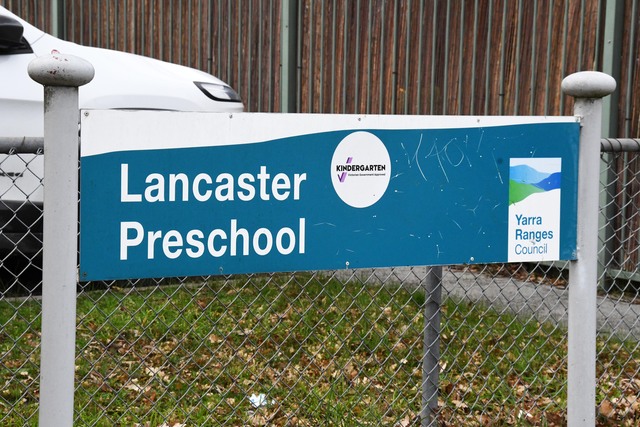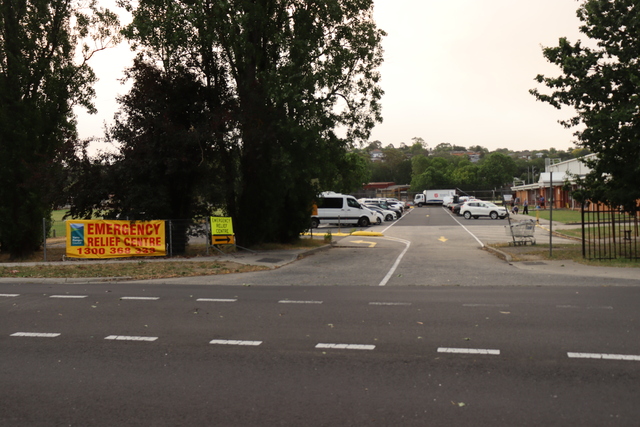Where it started:
Changes to the hours and structure of a kindergarten in Mooroolbark ignited concerns among parents who felt blindsided by the new schedule for 2026.
Yarra Ranges Kinders’ Lancaster Preschool will shift to a long-day format of 7.5-hour days for both three and four-year-olds next year.
The threes will attend two days, and the fours will attend three days on a rotational schedule.
But the parents who chose sessional kindergarten for a reason have said the longer days seem extensive for little bodies, impact school drop-off and pick-up times, and may cause toileting and eating challenges.
Neah, a mum of two, whose eldest son is currently finishing up four-year-old kinder and her youngest was due to start in 2027, said sessional kindergarten was necessary to ensure her oldest son’s health.
“He has developmental delays and a genetic condition that, at the time, included a heart issue that put him at increased risk for hospitalisation from minor illness,” she said.
“Sessional kinder offered shorter days, which reduced the risk of exposure to illness.”
She said that if the changes to the timetable had come earlier, she doesn’t believe her son would have coped.
“My child, like many others with or without disabilities, benefits enormously from routine, familiar faces, and predictable friendships,” Neah said.
“A rotating roster or extended days would have disrupted all of that. It’s hard to overstate how important peer relationships are at this age, particularly for children like mine who rely on the scaffolding of familiar friends to learn how to interact with toys and others in safe and productive ways.”
Similarly, mum Melissa, who has one child enrolled at Lancaster Preschool, choosing sessional kindergarten suited her child’s needs.
“I am very concerned about how the long hours and fewer days of kinder will impact my child. My child suffers from epilepsy and is medicated to control this. The medication he has to take has side effects that include fatigue,” she said.
“It’s possible that going into school, he will need adjusted hours or extra rest times to cope, which I am sure would make any child feel different to their peers.
“I was assuming and hoping this wouldn’t be something we would have to navigate at this stage, but I am extremely hesitant to allow him to attend kinder for hours that are longer than a school day.”
The period of notice was also questioned, with parents notified in July at the time enrolment offers were sent out, meaning there was little option to apply to other sessional kinders, as most would already be full.
For Jessica, who has one child in kindergarten and one in primary school, the increase to 7.5 hours, with a start time of 8.30am and a finish time of 4pm, means one of her children will most likely be late.
“It clashes directly with my son’s primary school time. If I get my daughter (to kinder) on time, and she’s upset for a moment, needs a bit of extra support, or there’s an extra school bus that I get stuck behind on the way, my son will be late to school, which isn’t OK for primary school,” she said.
“She also struggles with toileting, so five and a half hours is a long time. An extra two hours on top of that, honestly, it’s probably a health issue. Same with eating. Little kids, they’re so excited to be at kinder and running around, they don’t tend to want to sit down and eat a whole meal.
“With a four or five and a half hour session, they can get a light snack. But when it becomes a day that’s essentially longer than a school day, that’s another issue that just me, personally, in my family, will face.”
Another mum, whose eldest child is at the kinder, said that eating, or lack of, was her main concern.
“My main concern surrounding the extended hours is eating – quite often my child won’t eat much during the day at kinder as they’re too busy playing,” she said.
“Long daycares of similar hours to the proposed can operate that way as they offer every child the same meals from their kitchen, so there’s no jealousy or envy of another child’s lunch as they’re all eating the same thing.”
Unlike long-day care, where parents can drop off and pick up at flexible times and children are provided meals throughout the day, kindergarten is designed to be an introduction to school.
“Sessional kindergarten, it’s almost like a mini school program. It’s the same kids on the same days, at the same time, same routines, and for the people who choose that, there are some really strong benefits to it,” Jessica said.
Had the extended hours been implemented for 2027 instead, Jessica said it would have meant those who were enrolling for that year could plan and accept the changes, or look elsewhere for a service that suited them.
“For us, next year, we really don’t have that option anymore. There aren’t other choices. The other kinders are full.”
The extended hours for both three and four-year-old kindergarten fall under the State Government’s Best Start, Best Life reforms, introduced in 2022, to offer free kindergarten to all.
The $14 billion shake-up of the early childhood education sector will see three-year-old kindergarten programs increase to 15 hours a week by 2029 and a 30-hour-a-week pre-prep program by 2036, replacing current four-year-old kinder programs.
A gradual roll-out of pre-prep began in six rural and regional local government areas this year.
Metropolitan councils, including the Yarra Ranges, will be required to offer 30 hours of pre-prep by 2034, with staged increases in hours during that time.
All kindergartens will be prescribed to the reforms by 2036.
Yarra Ranges Kinders’ chief executive officer, Juliette Hammond said these changes were in response to growing preferences from families and the Best Start, Best Life reforms.
“This change will align Lancaster Preschool with 14 of our other services already operating under a 7.5-hour model,” she said.
“The rotational model allows for more children to attend the kinder, so it will facilitate us offering more places to meet demand.
“As a not-for-profit provider operating 22 kindergartens across the local government areas of The Shire of Yarra Ranges and Knox City Council, we continuously review our service models to meet community needs while ensuring sustainable operations.”
But Neah said because of the proposed hours, some parents with school-aged children will be unable to arrive on time or pick up their children on time and this should be accounted for in the funding.
“If YRK wants to give an option for longer days for children who fall under the early Pre-Prep roll outs, that would make more sense than expecting parents to either drop children off late or pick them up early if the hours don’t suit, thereby cutting their kinder hours below the 15 funded hours.
“If parents are forced to have less than 15 hours due to the need to work around the change in expected time table after taking their placements, YRK should have to report that and not receive the full 15-hour government funding for every single one of those students.”
As someone with a background in childcare, Neah has seen the reverse of longer days and the impact. She said she wouldn’t be surprised if, in years to come, research showed that longer days were not the answer.
“I’m concerned that these changes reflect a misunderstanding of what young children actually need,” she said.
“Long, structured days are not always beneficial, particularly to kinder-aged children, and the idea of extending their time beyond what even older school-aged children manage just doesn’t seem developmentally appropriate.”
The escalation:
Within three months, the concerns of parents had escalated beyond just timetabling and the length of kinder days, with the motivations and communication from management called into question.
In late October, a co-signed letter from 14 Lancaster Preschool parents called for Yarra Ranges Kinders’ to reinstate the 2025 timetable, reject any notion of three-four composite classes, undertake genuine consultation with parents and teachers, and uphold values of transparency.
As a single classroom-style building, parents rejected the idea of combining the two age groups.
“After months of frustration and disappointment, we write to express our deep concern and objection to the proposed 3/4 composite kindergarten class for 2026,” the letter states.
“Let us be absolutely clear: we will not accept a 3/4 composite class structure next year. Any plans for this should be reconsidered immediately.”
Reasons for rejecting the three-four classes included the compromising of children’s learning outcomes, social development, and school readiness, as well as the lack of communication and preparedness for parents who had already enrolled under the separated structure.
In communication shared with Star Mail from YRK’s senior management, it stated that the three-year-old age group had “significantly more applications” than the four-year-old cohort, with vacancies still available for this age group.
“This trend of high three-year-old demand and lower four-year-old demand is a theme across many of our communities in 2026,” YRK’s communication reads.
“This means that unless we explore new ways of managing demand, such as mixed age groups, we may need to turn away local families who are seeking access to kindergarten.”
Permanently appointed YRK chief executive officer Juliette Hammond confirmed this in a response to Star Mail, stating that consideration for combining the age groups was “due to high demand and low availability of three-year-old places”.
“Parents were asked to indicate if they were supportive of this approach and after substantial community feedback, YRK made the decision not to introduce mixed-age groups at Lancaster in 2026,” she said.
“This does, however, mean that unfortunately, some three-year-old families will miss out on Lancaster next year. YRK are offering these families an alternate place at nearby services.”
For Neah, she chose Lancaster Kindergarten “on a whim” after booking a tour to compare with another kindergarten but “was completely won over”.
“The environment was warm, joyful, and clearly designed with children’s emotional wellbeing in mind,” she said.
“I have a background in childcare and could see from the moment I started my tour that the staff were incredibly nurturing and it was clear they loved what they did.”
She said this was the reason many parents chose Lancaster, for the environment it fostered and the teachers who were wonderful to be around.
Neah said the proposed changes, both to the timetable and the potential for classes to be combined, felt like YRK was putting the financials ahead of the wellbeing of the children.
“Instead of being concerned that single room kinders are less profitable, maybe their focus should be on bolstering the dual room kinders and not destroying everything about one that parents have specifically chosen for the environment that it provides,” she said.
The former Parent Support Group (PSG) president, who resigned effective immediately on Thursday 13 November, because of a misalignment of values, and who wished to remain unnamed, said the timeline for the Best Start Best Life reforms was implemented for a reason.
“The 2036 timeline was put in place for a reason: to attract more teachers and have processes to allow for changes, like establishing two rooms,” she said.
Multiple parents also confirmed with Star Mail that all teaching staff have resigned. They are finishing term four, but will not be returning in 2026.
Two weeks ago, parents didn’t believe teachers had been appointed permanently for the 2026 year, sending a wave of instability through the group.
This has driven some families to leave the kindergarten entirely, enrolling elsewhere for 2026, choosing instead to pay out of pocket for the surety of what they are getting.
“The solution to gain more enrolments is actually creating more enrolment problems,” the former PSG president said.
Neah has also chosen not to send her youngest son to any YRK kindergarten in 2027.
The former president said, “it is gut-wrenching” for the kindergarten to lose such incredible staff.
“Thank you for the equitable inclusion of my son. Thank you for your support and genuine care for our children, for the love you poured into Lancaster, and for the genuine warmth you bring to the place,” Neah said of the teachers and educators at Lancaster.
Ms Hammond would not comment on the number of resignations YRK had received this year, but said “The number of resignations for 2026 is nothing unusual and is consistent with sector trends”.
“What we can confirm is that YRK is working to ensure continuity of staffing and program quality for 2026,” she said.
“We are about to confirm all positions for 2026. We can reassure families that recruitment of qualified, experienced educators has been completed ahead of schedule to ensure stability. We will confirm the Lancaster teaching group with families very soon.”
Ms Hammond said Lancaster families would be given the opportunity to meet the new teachers ahead of term one beginning.
While the former PSG president has decided to keep her son enrolled at Lancaster for 2026, she said it was purely based on friendships.
“We wanted to move him, but he has made friends this year and they will all be attending primary school together in 2027,” she said.
“I feel trapped friend-wise. If I could move him, I would, but he only has one year left.”
Parent Melissa said, “The lack of transparency from YRK has caused significant distrust amongst the families.”
“There are plenty of options available for families who prefer or require longer days, whether at day cares or other sessional kinders. Lancaster could be a point of difference in offering shorter days for those who have that preference or need.
“YRK seem to be pushing ahead for the proposed changes by the government well ahead of time, and without the suitable resources at a single classroom kinder.”
But Ms Hammond disputed this claim, stating that “YRK is not implementing anything earlier that other EYMs are”.
“Changes were required sooner at some services to meet workforce requirements, to ensure financial sustainability, respond to demand trends, and avoid turning families away—particularly in areas where three-year-old enrolments are increasing rapidly,” she said.
This distrust was echoed in the co-signed letter, stating that “YRK has lost the trust and respect of many families”.
“Our children deserve to thrive, not simply cope in an environment shaped by cost-cutting and poor management decisions.
“YRK appears more focused on financial consolidation — through extended hours, rotational timetables, composite classes, and “casual care” days — than on educational quality.”
Ms Hammond said she recognises and “respects the right of families to voice concerns”, especially when it comes to the education of their children.
“I recognise periods of change can be challenging, that emotions are currently heightened in the early year sector and that this has been a particularly difficult year for some families.
“Although I may not agree with the opinions expressed and stand behind the decisions made this year, I acknowledge we need to improve communication and engagement with our families.”







